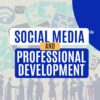Author: Jacqui
How to Kidproof the Internet
How to keep children safe online is the most popular question parents ask at my school. They want to know about firewalls, filters, kidsafe desktops, nannycams, cyberbullying, internet privacy, and everything in between. Should they keep their children away from computers or just off the internet? Do they have to sit with them while they work? Is there an age when it’s OK to let them on their own?
No. No. and No. Parents must teach children to take care of themselves while visiting the vast, anonymous, addictive neighborhood called ‘the internet’. Just as they stay at your side in large busy stores, don’t talk to strangers, and don’t open the door to people they don’t know, they will learn to be safe in the digital world. Because it’s part of our genome–to do what keeps us safe.
While they’re getting to that epiphany, here are ideas you can employ to support them on the way:
- Teach your children to use the internet. They are digital citizens which includes rights and responsibilities they probably aren’t aware of. Just as in their neighborhood, they must learn them. Don’t hope school teaches them. They may, or might teach them wrong. Teach your kids to avoid ads, that anonymous isn’t innocent, and online relationships aren’t always friendly. Tell them again and again. Sooner than you think, they will own it. Just as they don’t cross the street without looking both ways, they won’t cross the ‘digital street’ unless it’s safe.
- Discuss what they can and cannot do online. Discuss why so they understand. You want them able to take care of themselves which means not putting themselves in harm’s way.
- Use a parental control filter. Block everything you worry about–chicks, Minecraft, girls, Facebook, xxx, murder. It’s easy to unblock if your child needs a site that won’t come up. More importantly, it leads to a conversation with your child about what they’re researching and why a particular site is relevant. You want your child comfortable with you involved in their lives–not as an arbiter of right and wrong, but an interested loving party.
- Do not assume parental controls are perfect. In fact, assume they aren’t. Stay vigilant. Be aware when your child is too quiet or too noisy at the computer. Ask questions. Pop in unexpectedly.
- Enforce rules. Don’t decide you’re too tired one night to go check a website your child tells you they need to visit. Always always always follow your own rules.
- Check ‘history’ on your child’s computer. Do it with them so they understand this is part of the plan to keep them safe.
- Know what their school does to keep your child safe online. Follow the same rules, or follow your own. Do explain the differences to your child. Children are flexible. They will be fine with varied rules.
Share this:
- Click to share on Facebook (Opens in new window) Facebook
- Click to share on X (Opens in new window) X
- Click to share on LinkedIn (Opens in new window) LinkedIn
- Click to share on Pinterest (Opens in new window) Pinterest
- Click to share on Telegram (Opens in new window) Telegram
- Click to email a link to a friend (Opens in new window) Email
- More
What Student Assignments and Projects Are Considered Most Difficult: Myths and Truths
What Student Assignments and Projects Are Considered Most Difficult: Myths and Truths
Are you a student who has ever wondered which assignments and projects are the most challenging? We’ve all been there, faced with daunting tasks that seem insurmountable. In this comprehensive guide, we will delve into the myths and truths surrounding the difficulty of student assignments and projects. By the end, you’ll gain a deeper understanding of these academic challenges, along with expert insights and tips to help you excel.
Share this:
- Click to share on Facebook (Opens in new window) Facebook
- Click to share on X (Opens in new window) X
- Click to share on LinkedIn (Opens in new window) LinkedIn
- Click to share on Pinterest (Opens in new window) Pinterest
- Click to share on Telegram (Opens in new window) Telegram
- Click to email a link to a friend (Opens in new window) Email
- More
6 Best Summer Jobs For High School Students & How To Land Them
Summer jobs for many high schoolers (myself included) was a right of passage, where we stuck our toe into the adult work-a-day world for a brief period before returning to school for more education. Arguably, our summer experience helped us decide to continue our learning into college, apply for trade school, join the military, or something else.
If you’re helping students select a summer job for next year and they want one that works better than this year’s choice, check out these ideas from the Ask a Tech Teacher crew:
6 Best Summer Jobs For High School Students & How To Land Them
With summer always seeming like an endless expanse of time for high school students, you might be wondering how to make productive use of it.
Getting a summer job can be a great solution. Not only will it provide an income, but also crucial skills and work experience that look great on college applications.
From babysitting to retail jobs, from lifeguarding to internships, there’s something suited to every student’s preferences. With this amount of choice, it’s worth exploring each opportunity in detail, so let’s do that together.
Share this:
- Click to share on Facebook (Opens in new window) Facebook
- Click to share on X (Opens in new window) X
- Click to share on LinkedIn (Opens in new window) LinkedIn
- Click to share on Pinterest (Opens in new window) Pinterest
- Click to share on Telegram (Opens in new window) Telegram
- Click to email a link to a friend (Opens in new window) Email
- More
I’m Visiting My Sister October 10-19th

October 10-19th
I’m visiting my wonderful sister in Indiana. Our plans: walk, read, cook, talk, tread, pet the dog–sounds fun, doesn’t it? I can’t wait.
See you-all in a few weeks!
Share this:
- Click to share on Facebook (Opens in new window) Facebook
- Click to share on X (Opens in new window) X
- Click to share on LinkedIn (Opens in new window) LinkedIn
- Click to share on Pinterest (Opens in new window) Pinterest
- Click to share on Telegram (Opens in new window) Telegram
- Click to email a link to a friend (Opens in new window) Email
- More
Case Study Resources for Modern Teachers
In education, case studies are widely used as a pedagogical tool to encourage critical thinking, problem-solving skills, and the application of theoretical knowledge. They serve as a bridge between theory and practice, promote active learning and the development of practical skills that improve their teaching methods. Our Ask a Tech Teacher crew has several resources for you to consider when you’re looking for case studies that relate to your next project:
Case Study Resources for Modern Teachers
Introducing case studies in your course can help prepare your students to deal with real-world situations. Well-planned case studies can challenge students’ problem-solving and critical-thinking skills. This teaching approach can help them analyze and find realistic solutions to complex problems.
As educators embarking on the application of case studies, creating your individual case studies or incorporating existing ones is pivotal. If the pursuit is to provide students with a custom assignment as you get started, opting for an online case study writing service is highly beneficial; services such as EduBirdie or Studybay extend premier case study writing services tailored to your needs. (more…)
Share this:
- Click to share on Facebook (Opens in new window) Facebook
- Click to share on X (Opens in new window) X
- Click to share on LinkedIn (Opens in new window) LinkedIn
- Click to share on Pinterest (Opens in new window) Pinterest
- Click to share on Telegram (Opens in new window) Telegram
- Click to email a link to a friend (Opens in new window) Email
- More
Dozens of Online Resources for Assessment
Assessment of student work is a crucial aspect of learning. It helps students recognize important lesson goals and teachers gauge understanding. While multiple choice, short answer, and essays are still proven methods, there are many alternatives teachers can use for their particular student group. Here are some you can look into–and all online:
- Easy CBM
- Educreations–video a whiteboard explanation of how students are completing a task (app)
- Edulastic–formative assessments; work on any devices (app)
- Flip — record a video question from your desktop; add attachments; students respond from the app with their answer
- Flubaroo (app)
- Gimkit–gamified assessment, like Kahoot; freemium
- Go Formative (app)
- Google Forms (app)
- Kahoot–quiz-show-like format (app)
- Socrative (app)
- Stick Around–turn questions into puzzles (app)
- ThatQuiz.org
Add-ons
Badges
- BloomBoard–badges for teacher PD
- Credly
- Open Badges
Class Review
- Digital Breakouts–review or assessment in a gamelike format; includes mostly history, but other topics; high school
- Kahoot–with a new team mode
- Quizlet Live–students join with a code, break into teams, and are quizzed on a Quizlet
Common Core Prep
- ReadyTest AtoZ--from RAZ Kids, freemium
Flashcards
Grading
- Gradescope (from Turnitin)
- Paperscorer–create quiz in Google Forms, grade it through Paperscorer
- Planbook–online lesson planning and gradebook
Quizzes/Tests
Peer Review
- PeerGrade–automate the process
Rubrics
SAT/ACT Online Resources
Warm-up/Exit Tickets
Failure
- The Crossing–attempts to cross a gorge; some fail; all result in success
Here’s the sign-up link if the image above doesn’t work:
Jacqui Murray has been teaching K-18 technology for 30 years. She is the editor/author of over a hundred tech ed resources including a K-12 technology curriculum, K-8 keyboard curriculum, K-8 Digital Citizenship curriculum. She is an adjunct professor in tech ed, Master Teacher, webmaster for four blogs, an Amazon Vine Voice, CSTA presentation reviewer, freelance journalist on tech ed topics, contributor to NEA Today, and author of the tech thrillers, To Hunt a Sub and Twenty-four Days. You can find her resources at Structured Learning.
Share this:
- Click to share on Facebook (Opens in new window) Facebook
- Click to share on X (Opens in new window) X
- Click to share on LinkedIn (Opens in new window) LinkedIn
- Click to share on Pinterest (Opens in new window) Pinterest
- Click to share on Telegram (Opens in new window) Telegram
- Click to email a link to a friend (Opens in new window) Email
- More
How to Teach Students: Teach Their Parents
If parents don’t value tech, students won’t. If parents are confused by what you teach, they will pass that on to their children. Be open to parents. Answer their questions. Never EVER leave them feeling intimidated. Let them know that lots of people feel exactly as they do.
A great solution I’ve had a lot of success with: Have a parent class. I schedule this after school while parents are waiting for their children to finish enrichment classes or sports. They’re hanging around anyway–why not learn something. Cover topics that parents are asking about, should be asking about, and/or their students are asking about:
- show how to log onto and use the school website
- show how to log into the school online grade reports
- demonstrate how to use the school online library/lunch order system (or similar)
- review what is being covered in K-5 classes (depending upon who is in the parent class)
- review your philosophy. Model this philosophy as you teach parents
- provide skills parents want, i.e., making a flier for the school soccer team
- show the progression of skills from kindergarten to 5th in one program, say word processing. Start with an art program; move into Word
- answer tech questions they have from non-school problems–even if a home system
Here’s my flier inviting parents to attend (just a sample):
Share this:
- Click to share on Facebook (Opens in new window) Facebook
- Click to share on X (Opens in new window) X
- Click to share on LinkedIn (Opens in new window) LinkedIn
- Click to share on Pinterest (Opens in new window) Pinterest
- Click to share on Telegram (Opens in new window) Telegram
- Click to email a link to a friend (Opens in new window) Email
- More
22 Ways to Add Rigor to Your Class
Let’s start by clearing up a misconception: Rigor isn’t unfriendly. Adding it to your class doesn’t mean you become boring, a techie, or overseer of a fun-free zone. In fact, done right, rigor fills your class with Wow, those epiphanies that bring a smile to student faces and a sense of well-being to their school day. Rigor provides positive experiences, is an emotional high, and engenders a pervasive sense of accomplishment students will carry for years–and use as a template for future events.
It is NOT:
- lots of homework
- lots of projects
- lots of resources
- lots of rules
When those are used to define rigor, the teacher is flailing–thinking quantity is quality. Rigor is not about adding a column of data or remembering the main characters in a Shakespeare novel. It’s seeing how that knowledge connects to life, to circumstances and to daily problems.
Simply put, adding rigor creates an environment where students are:
- expected to learn at high levels
- supported so they can learn at high levels
- cheered on as they demonstrate learning at high levels
It helps students understand how to live life using brain power as the engine. Sure, it will ask them to collect evidence and draw conclusions that may find disagreement among their peers. It will insist they defend a position or adjust it to reflect new information. And it will often move them outside their comfort zone. It will also prepare them to solve the problems they will face in the future.
Share this:
- Click to share on Facebook (Opens in new window) Facebook
- Click to share on X (Opens in new window) X
- Click to share on LinkedIn (Opens in new window) LinkedIn
- Click to share on Pinterest (Opens in new window) Pinterest
- Click to share on Telegram (Opens in new window) Telegram
- Click to email a link to a friend (Opens in new window) Email
- More
7 Tips for Using Social Media for Professional Development
Tell me if this sounds familiar:
With the 2023 New Year, you resolved to build your Professional Learning Network–finally, to stop living in the 20th century where your world revolved around a sticks-and-bricks building, a landline phone, and the mailbox. You joined all the big social media platforms (X, Facebook, LinkedIn, blogging–just for starters). The plan was to learn from the movers and shakers in education, have them as a resource when you needed help on a lesson plan or to select the perfect webtool for a project. You committed hours to it, and then days, eager to make this work because everyone you know talks about how much they learn from social media. Now, six months into it, you know too much about your followers’ lunch plans and almost nothing about their educational pedagogy. You’re frustrated, angry, and ready to give this whole failed effort up.
Without knowing anything about you other than that paragraph above, I’m going to predict that you became overwhelmed by the volume of information that flooded your inbox every day. The purpose of a social media-based PLN is to extend your reach beyond the narrow confines of the bubble you live in, not lose everything important in constant noise.
Before you unplug, try these seven steps to clean up the clutter, smooth out the wrinkles, and put you back in the driver’s seat of your online life:
Keep your stream pure
Only accept friends in your professional area of interest. This is less like a speed-dating party and more like a job application. When you come across a promising educator, visit their social media, pass judgment on whether they fit your needs, and then make a decision.
Share this:
- Click to share on Facebook (Opens in new window) Facebook
- Click to share on X (Opens in new window) X
- Click to share on LinkedIn (Opens in new window) LinkedIn
- Click to share on Pinterest (Opens in new window) Pinterest
- Click to share on Telegram (Opens in new window) Telegram
- Click to email a link to a friend (Opens in new window) Email
- More
7 Highly Useful Tech Skills to Develop if You’re Aiming for a Career in Accounting
I used to be pretty good at accounting because I was a whiz with spreadsheets and data analysis. That changed when accounting began relying heavily on technology. Well, to be honest, traditional accounting–financial analysis, auditing, and tax knowledge–might still revolve around my sweet spots, but the rest, I now hire skilled professionals.
And I’m not the only one who realizes the importance of tech skills in accounting has changed. One of our Ask a Tech Teacher members has a great article outlining the tech skills you’ll want to look at if you’re interesting in pursuing an accounting career after high school:
7 Highly Useful Tech Skills to Develop if You’re Aiming for a Career in Accounting
In the digital era, the accounting industry has tightened its embrace of technology, transforming traditional roles into tech-oriented ones. Undeniably, tech skills have become just as essential as understanding debit and credit for accountants as computers become necessary for work.
These technological competencies allow accountants to streamline their work, provide more in-depth analysis, and enhance decision-making processes. Whether you’re just stepping into the world of accounting or aspiring to advance your career, sharpening your tech skills will unlock new opportunities and make you a much sought-after professional in this industry.
Share this:
- Click to share on Facebook (Opens in new window) Facebook
- Click to share on X (Opens in new window) X
- Click to share on LinkedIn (Opens in new window) LinkedIn
- Click to share on Pinterest (Opens in new window) Pinterest
- Click to share on Telegram (Opens in new window) Telegram
- Click to email a link to a friend (Opens in new window) Email
- More




















































